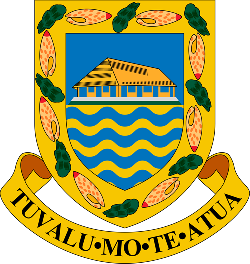Areas of Expertise
Project Status
Filter by project scope:
Project Type
Results
Project Coordinator: Mr Saamu TuiAlthough climate change is cited as the most signifigant security threat to he south pacific, its likely effects on security and potential conflict are yet to be widely explored by the international an regional organisations present on the ground. Climate change in the pacific region has the potential for a myriad of cascading fragility and instability risks. These will affect men, women and youth differently, and vary across the region both according to timeframes under consideration and depending on the country context.There are a range of critical climate fragility risks emerging in the Pacific Region that will require greater examination, monitoring and coordinated action by many stakeholders at the national, regional and international level to prevent potential irrevesible economic, social, cultural and environmental damage with a range of potential security implications and a direct impact on social cohesion. Most critical issues amongst these include:
Status: Completed
Project Coordinator: Mr Lono LeneuotiSIDS rely on small coastal aquifers for their water supply needs. These coastal aquifers are fragile thin freshwater lenses that float on the underlying denser seawater and are reliant on rainfall for recharge. These coastal aquifers are at higher risk of impact to water quality deterioration from threats including saltwater contamination from sea level rise, over abstraction, wave overtopping, loss of aquifer area through coastal erosion, and other impacts on water quality from inappropriate land-use activities. Climate change exacerbates these long-running threats to coastal aquifers through increased climate variability and climate extremes. The fragility of coastal fresh groundwater systems necessitates careful management and protection to ensure their long-term integrity and their role in climate change adaptation strategies and improved water security. The project aims at improving the understanding, use, management and protection of coastal aquifers towards enhanced water security, including in the context of a changing climate. More specifically it aims at 1) identifying the extent, threats and the development potential of groundwater resources, 2) increasing awareness of groundwater as a water security supply source, 3) providing options for improved access to groundwater and 4) and improving aquifer protection and management, within Pacific Small Island Developing States.
Status: Current
The Tuvalu Integrated Water Resource Management Project focuses on the atolls of Funafui, Niutao, Nanumea and Nanumaga working on developing drought management plans, creating water and sanitation plan, and collecting data and producing a toll to enable accurate forecasting of water shortages and drought information.
Status: Current
The overall goal of the Programme is to increase the resilience of populations in the CookIslands, Niue, Palau, the Republic of the Marshall Islands (RMI) and Tuvalu to climate changeand climate-related hazards, through the delivery of timely, accurate and actionable climate andocean information and early warnings to facilitate climate-resilient policy, planning,preparedness and response actions.The Programme will establish integrated climate and ocean information services and multihazardearly warning systems (MHEWS) in five Pacific Small Island Developing States (SIDS):Cook Islands, Niue, Palau, RMI and Tuvalu.
Status: Current
topography, size, geographical remoteness and access to resources. Despite these challenges, it has become a leading voice for enhanced climate mitigation regionally and globally. Tuvalu is now developing a national adaptation planning process (and NAP) that will form a sustainable platform for future adaptation investments.
Status: Current
Climate change is a fundamental cross-cutting issue that undermines Tuvalu socio-economic development efforts. Tuvalu’s climate change priorities are articulated in the recently approved Te Kete Sustainable Development Strategy 2021-2030, national climate change policy, sectoral policies as well as in legislation such as the Tuvalu Climate Change and Disaster Survival Fund Act and Regulations. As indicated in the NDC, Tuvalu commits to a reduction of emissions of greenhouse gases from electricity by 100% by 2025. Emissions will be reduced from all other key sectors including Agriculture and Waste, conditional upon the necessary technology and finance. An updated climate change strategy is currently being prepared.
Objectives Fiscal revenue and impacts on Tuvalu capacity to implement national climate policies and international commitments Food security and development of national agriculture production Fishery and tourism Education Energy and water Infrastructure Disaster Preparedness and Management and resiliency of the health system
Status: Completed
Pacific Adaptation 1 to ClimateChange and Resilience Building (PACRES) aims to ensure better regional and nationaladaptation and mitigation responses to climate change challenges facing Pacific ACP countries.It is being implemented by the Secretariat of the Pacific Regional Environment Programme(SPREP), the Pacific Islands Forum Secretariat, the Pacific Community and theUniversity of the South Pacific.PACRES is supporting regional and national climate change portals to increase access toand reach of climate change and disaster resilience information. This includes contributing toongoing maintenance and support of regional and national knowledge management portals,which are critical to their long-term sustainability.
Status: Completed
